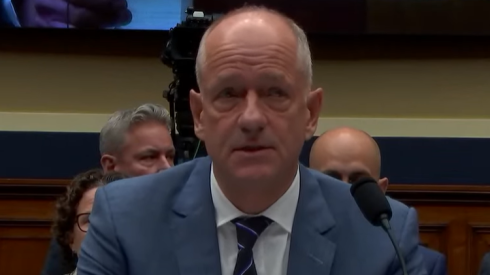Latest Stories
The company, which sells data integration software for state and local agencies, plans a hiring spree. The company is eyeing steady growth as more governments demand better ways to assemble and use data.
Latest Issue
From the Magazine
Our 2024 class of award winners is a talented group of not only technologists, but state and local leaders pushing the bounds of what it means to serve residents.
Samantha Sendrowski outlines her approach to AI, learning from her peers, and the advantages and challenges of managing systems in New England's second largest city.
AI-generated cyber attacks and deepfakes mean new risks and new ways to fight them. "Human risk management" is a term to describe how organizations train their staff to detect these evolving threats.
In-Person Events
Question of the Day
Data
From Our Partners





















